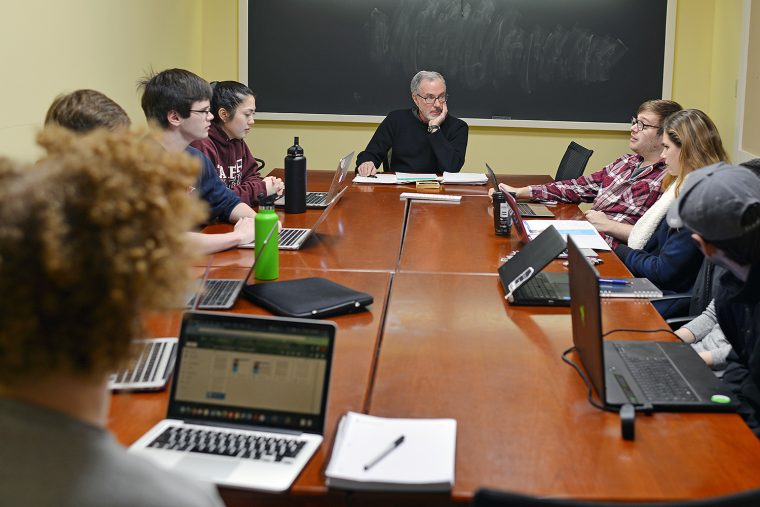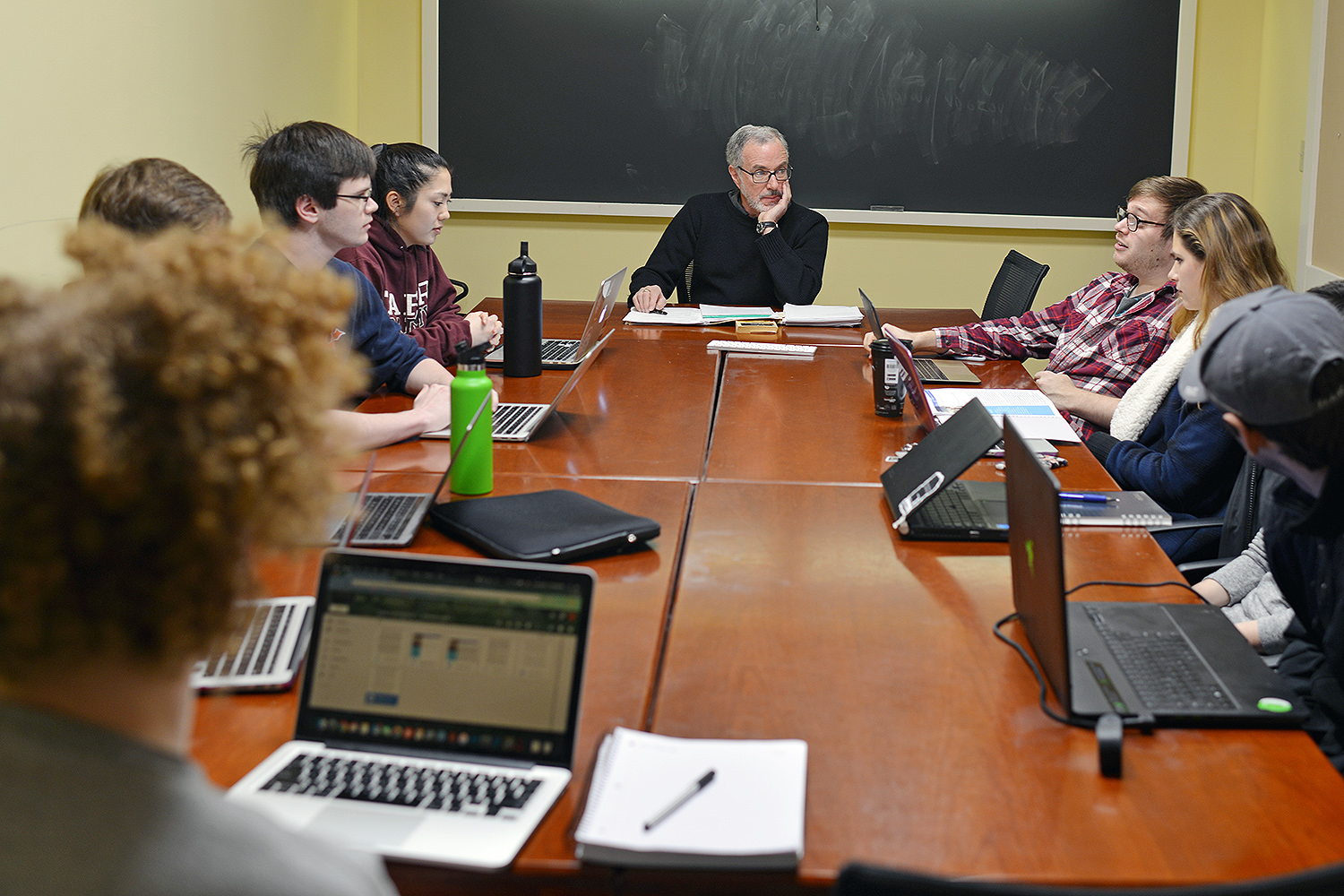Students Learn to Translate Academic Knowledge for Public in Calderwood Seminars


When President Michael Roth speaks about the purpose of college, he frequently boils it down to three key things: students should find what they love to do, get better at it, and learn to share what they love with others. This semester, Wesleyan is adding to its curriculum to help students develop this third critical skill.
Wesleyan recently received a 3-1/2 year grant for over $600,000 to pilot on campus the Calderwood Seminars, which train students in translating complex arguments and professional jargon from their academic disciplines into writing that can be understood and appreciated by the general public. The seminars, developed by Professor David Lindauer at Wellesley College in 2013, have proven valuable for students in life beyond college. The program’s pedagogical approach has been successfully adapted across many different disciplines.
This spring, Wesleyan is offering its first two Calderwood Seminars: “The Global Firm,” taught by Associate Professor of Economics Abigail Hornstein, and “Classical Studies Today,” taught by Andrew Szegedy-Maszak, the Jane A. Seney Professor of Greek, professor of classical studies. According to Provost and Vice President for Academic Affairs Joyce Jacobsen, Wesleyan expects to offer approximately six Calderwood Seminars each year over the next few years, with the hope that these seminars may become a regular part of the Wesleyan curriculum. Next year, seminars will be offered in earth and environmental studies, English, music, philosophy, religion and theater.
Sean McCann, professor of English and director of academic writing, who is overseeing the program, said Wesleyan has offered several different courses in the past on writing geared toward the public. But, he said, “The striking success of the Calderwood Seminars at Wellesley has been inspirational.” Several other institutions, including Amherst College, Georgetown University and Middlebury College, are also adopting the seminars this year.
Speaking to his motivation for teaching the seminar, Szegedy-Maszak said, “We’re surrounded by classical influences and references, but if classical studies are to survive and thrive, they can’t be the possession of a small group of specialists. This course is meant to enable the students to talk about what they’ve studied with people like their families, their friends, prospective employers, etc. I see such communication as a crucial skill for anyone doing liberal arts.”
His seminar is small, only nine students, and comprised of juniors and seniors, nearly all majoring in classics or classical civilizations. Students will be asked to read weekly selections—ranging from Thucydides and Plutarch to modern scholarship—and to “convert” the readings into a variety of contemporary genres. Students will benefit from peer review and editing.
“One key element for writing effectively is to identify your intended audience,” said Szegedy-Maszak. “In my syllabus, I’ve tried to present a variety of prospective audiences, from high school students to museum-goers to readers of general interest publications like The Huffington Post.”
Eight seniors majoring in economics are enrolled in Hornstein’s seminar, which is focused on distilling advanced concepts in micro- and macroeconomics into writings that are accessible to noneconomists.
“In most electives, students are taught to write academic research papers that are not necessarily accessible to outsiders and the emphasis is on the research in order to demonstrate breadth and depth of knowledge,” said Hornstein. “However, our students will likely draw on their economic training in their post-graduate careers, and they will need to be able to communicate complicated concepts simply in a way that is respectful, accessible and relatively devoid of jargon.”
In the writing assignments for her seminar, Hornstein places emphasis on writing for the news media.
“Economics permeates a lot of what we read in the news on a daily basis, and not just in the business sections, and thus we are all constantly exposed to examples of public writing that draw on economics,” she said.
The Calderwood courses will count toward Wesleyan’s Writing Certificate, which allow students majoring in any discipline to develop proficiency in creative writing and forms of nonfiction writing such as criticism, biography and autobiography, science writing, political and literary journalism and writing about academic subjects for nonspecialists.

